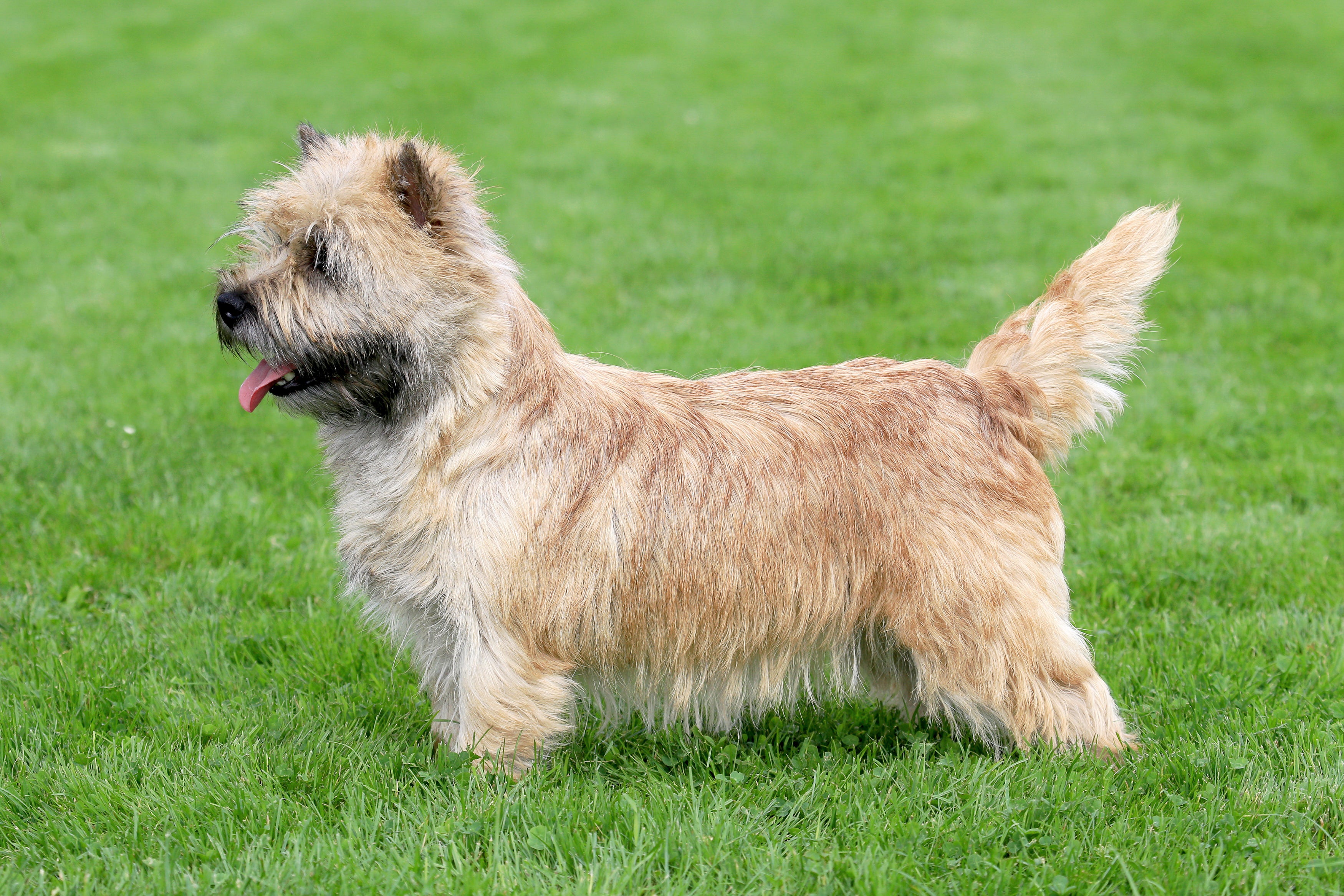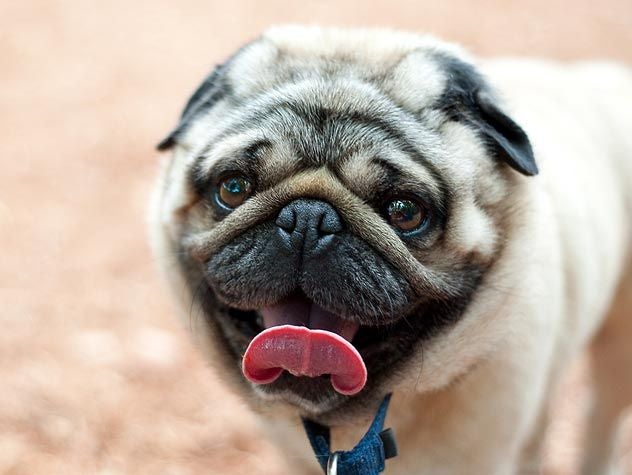Norwich Terrier
Animated and watchful, the Norwich Terrier is one of the smallest terrier breeds. Stocky and square, it maxes out at about 12 pounds—but don’t tell them that! The Norwich Terrier is bold, with a larger-than-life personality. They have a double coat with a hard, wiry, and straight outer coat and a foxy expression, hinting at their tenacity.
Breed characteristics carousel
Learn More
Need to Know
- Dog suitable for non-experienced owners
- Basic training required
- Need to be aware of potential health issues
- Enjoys active walks
- Small dog
- Some drool
- Requires frequent grooming
- Chatty and vocal dog
- Barks and alerts to visitors/anything unusual
- Could have issues with unknown dogs but gets along with known dogs
- May need additional training to live with other pets
- May need additional supervision to live with children
- Best for suburban or rural areas
- Can be left occasionally with training
- AKC Registered Breed

Personality
Lively with a bravado that is disproportionate to their bodies, the Norwich Terrier dog breed is ready to tackle any adventure, preferably with their owners by their side. They are perky and loving companion dogs who have active minds and bodies. They love to be entertained. Often more stubborn than other terrier breeds, the Norwich Terrier dog has an independent and quick mind that the right owner will find endearing.
Terriers were used for centuries in England to “rat” out rodents, but the Norwich Terrier was relatively unknown until the late 19th century when the breed we now know as Norwich Terriers became a fad at Cambridge University. They were first recognized in America in the 1930s.
Norwich Terriers have a zest for life and appreciate owners who feel the same way. Energetic and engaging, these dogs can be fiery, not realizing how small they are compared to their personalities.
Surprisingly athletic for such a small dog, the Norwich Terrier likes physical activity. They love digging, tugging, chasing, and any other games that play into their terrier instincts.
Small and compact, the Norwich Terrier doesn’t need much space. A fenced-in yard is a good idea; remember, terriers dig and these little dynamos are more than capable of digging under fencing or squeezing through holes in fences. They can be very reactive and vocal, so while they don’t need a ton of indoor space, close, noisy quarters in apartments might not be ideal.
Hard and wiry, the Norwich Terrier dog’s coat needs a good brush through a few times a week and a hand plucking twice a year.
Socializing Norwich Terrier puppies with humans and other animals can help the dog with its manners. They are smart, pick up training quickly, and will respond to positive reinforcement. Allowing them to chase, tug, dig, chew, and romp will keep them happy. Good recall is important as they will default to terrier antics if allowed.
Alert watchdogs, the Norwich Terrier does best in a quiet home without a lot of noise. A busy home may be too stressful for them, which in turn might make them hard to settle. Older children or no children are preferable.
The cost of a Norwich Terrier from a breeder is significantly more than the cost of adopting one from a local shelter or rescue. The adoption fee usually covers additional items such as spaying or neutering, vaccines, and microchipping.

Learn more about feeding and caring for your Norwich Terrier on Purina.
Did You Know?
- The Norwich Terrier and the Norfolk Terrier are not the same dog breed. Norfolk Terriers have folded ears, while Norwich ones have pointed ears.
- Norwich Terriers are one of the smallest terriers, often referred to as “big dogs in small packages” thanks to their bold personalities.

